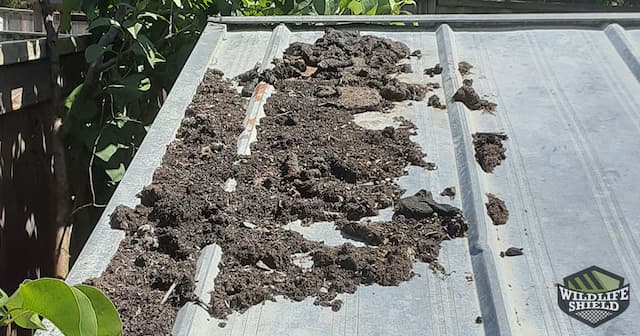These intelligent and resourceful urban residents frequently invade our homes, attics, and outdoor spaces. From a distance, their antics may amuse us, but coping with their droppings is no laughing matter. The removal and cleanup of raccoon feces are essential to maintaining a safe and hygienic living environment, as they pose a variety of health hazards.
Dangers of Raccoon Feces:
Raccoon defecation, also known as scat, may contain pathogens, bacteria, and parasites that pose a threat to the health of humans and animals. The potential prevalence of raccoon roundworm eggs (Baylisascaris procyonis) is one of the most concerning threats associated with raccoon droppings. If ingested or inhaled, these microscopic eggs can cause severe health problems, including organ injury and neurological disorders.
Exercise Extreme Caution:
When encountering raccoon defecation, extreme caution is required. Avoid direct contact with the droppings and any areas or objects that may have been exposed to them. Use disposable mittens and a face mask to prevent exposure to particles in the air.
Gather the Necessary Equipment:
Gather the necessary supplies before beginning the cleansing procedure. You will require disposable gloves, a face mask, plastic bags, a scoop or shovel, paper towels, a disinfectant solution, and soapy water in a container.
Extraction and Disposal:
Using the scoop or shovel, carefully collect and position the droppings in a plastic bag. Double-bag the garbage to avoid leakage and contamination. Seal the bags firmly and place them in a trash can located outdoors. To ensure that the feces do not pose a threat to sanitation personnel or the environment, it is essential to follow proper disposal procedures.
Cleaning and Decontamination:
After removing the droppings, sanitize and disinfect the area thoroughly. Scrub the affected surface with detergent water to begin. This will aid in the removal of any remaining excrement and contaminants. Apply a disinfectant solution, preferably one that is effective against a broad spectrum of bacteria and viruses. Be sure to adhere to the manufacturer’s utilization and dilution instructions.
Ventilation and Individual Hygiene:
Ensure adequate ventilation during the cleaning process by opening windows and doors to allow fresh air to circulate. Once you have completed the cleaning, remove your gloves and face mask with care to avoid contamination. Thoroughly wash your hands and any exposed skin with detergent and water.
Professional Cleaning Service:
The removal of raccoon feces can be hazardous, particularly in large or extensively contaminated areas. In such situations, it is strongly advised to hire a professional cleaning service. Professional wildlife eradication specialists have the knowledge and specialized equipment to clean and disinfect affected areas in a manner that minimizes the risk of exposure to dangerous pathogens.
Defending Against Future Contamination:
To prevent future contamination by raccoon feces, it is essential to resolve the underlying cause: raccoon infestations. If raccoons have gained access to your attic, shed, or other areas, you must take preventative measures. Consider installing protective barriers, such as galvanized steel lattice, to prevent raccoons from reentering the structure.
Conclusion:
Dealing with raccoon feces requires caution, the right equipment, and meticulous cleaning. You can reduce the risks associated with raccoon droppings and create a healthier living environment for you, your family, and your pets by using safe removal and cleansing techniques. Remember that enlisting the assistance of professionals assures a comprehensive and effective approach to raccoon feces removal and prevention when in doubt or when faced with a larger cleanup task.
Professional, affordable, and accessible raccoon removal bowmanville are done by professional wildlife raccoon removal experts.

